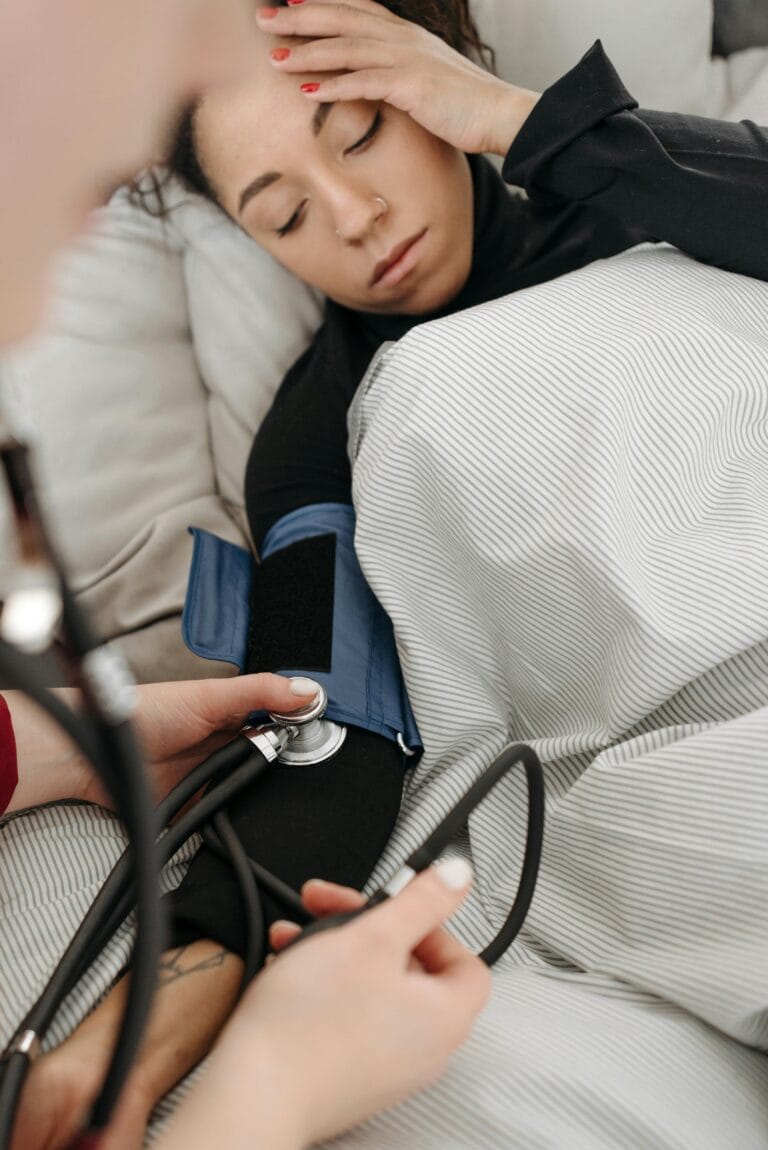FREE SHIPPING OVER $50
STOP Menopause Misery: Dieticians Reveal 4 “Game-Changer” Supplements for Rapid Symptom Relief!
If you’re a woman navigating the world of menopause, you know it’s not just a “change of life” – for many, it can feel like a relentless assault of uncomfortable, sometimes debilitating, symptoms. Hot flashes that leave you drenched, sleepless nights, mood swings that defy logic, stubborn weight gain, and frustrating brain fog. It can truly feel like menopause misery, turning your once-predictable life upside down.
While hormone replacement therapy (HRT) is an option for some, it’s not for everyone, and many women are actively seeking natural, effective ways to find rapid symptom relief without resorting to pharmaceuticals. You’ve probably heard about various vitamins and supplements out there, but knowing what actually works can feel like searching for a needle in a haystack.
Why Dieticians Are Turning to Specific Supplements for Menopause Relief

Dieticians are uniquely positioned to understand the intricate link between nutrition, hormones, and overall health. While they always advocate for a whole-foods-first approach, they also recognize that during a demanding hormonal transition like menopause, specific nutrient deficiencies or physiological needs might require targeted support through vitamins and supplements.
Their recommendations for menopause symptom relief are often based on:
- Evidence-Based Research: Looking at clinical studies that demonstrate efficacy.
- Safety Profile: Prioritizing supplements with a low risk of side effects.
- Holistic Approach: Considering how a supplement interacts with overall body systems, not just one symptom.
- Addressing Root Causes: Aiming to support the body’s natural balance rather than just masking symptoms.
Dieticians Reveal 4 “Game-Changer” Supplements for Rapid Symptom Relief!
These supplements are not magic pills, but when combined with a healthy lifestyle, they can provide substantial support during your menopause journey. As always, consult your doctor or a qualified dietician before starting any new supplement regimen.
1. Black Cohosh (Actaea racemosa / Cimicifuga racemosa)
- Why it’s a “Game-Changer”: Black Cohosh is one of the most well-researched herbal remedies for menopause, particularly known for its potential to alleviate hot flashes and night sweats. While its exact mechanism isn’t fully understood, it’s thought to interact with neurotransmitters or pathways in the brain related to temperature regulation, rather than acting as a direct estrogen replacement.
- Dietician’s Take: Many dieticians consider Black Cohosh a frontline botanical for vasomotor symptoms. It’s often recommended for women seeking non-hormonal options.
- Key Considerations: Look for standardized extracts (e.g., Remifemin) to ensure consistent potency. Effects may take a few weeks to become noticeable.
- Typical Dosage: Often 20-80 mg of standardized extract, once or twice daily.
2. Magnesium (The Multi-Tasking Mineral)
- Why it’s a “Game-Changer”: Magnesium is involved in over 300 biochemical reactions in the body, and its deficiency is surprisingly common. For menopause, it’s a multi-tasker:
- Sleep: Helps regulate neurotransmitters that promote relaxation and sleep (e.g., GABA), crucial for those struggling with insomnia or night sweats.
- Mood: Supports balanced mood and can help reduce anxiety and irritability.
- Bone Health: Vital for bone density, which becomes a greater concern post-menopause.
- Muscle Aches: Can ease muscle cramps and stiffness often reported during menopause.
- Dietician’s Take: Dieticians often recommend magnesium as a foundational supplement for overall well-being, particularly for its calming and sleep-supporting properties during menopause.
- Key Considerations: Choose highly absorbable forms like magnesium glycinate, citrate, or L-threonate (for brain benefits). Avoid magnesium oxide, which is poorly absorbed.
- Typical Dosage: 200-400 mg daily, often taken in the evening for sleep benefits.
3. Omega-3 Fatty Acids (EPA & DHA)
- Why it’s a “Game-Changer”: Found in fish oil, these essential fatty acids are powerful anti-inflammatory agents. During menopause, they can help with:
- Mood Swings: Support brain health and neurotransmitter function, potentially easing mood disturbances.
- Joint Pain: Reduce inflammation in joints, providing relief from stiffness.
- Brain Fog: Contribute to cognitive health and memory.
- Heart Health: Crucial for cardiovascular health, which is vital as heart disease risk increases post-menopause.
- Dietician’s Take: Dieticians emphasize omega-3s for their broad systemic benefits, crucial for managing the inflammatory and neurological aspects of menopause.
- Key Considerations: Look for a high-quality fish oil supplement with at least 500-1000 mg of combined EPA and DHA per serving. Ensure it’s third-party tested for purity and contaminants.
- Typical Dosage: 1000-2000 mg combined EPA + DHA daily.
4. Probiotics (For Gut-Brain-Hormone Connection)
- Why it’s a “Game-Changer”: While not directly targeting hot flashes, a healthy gut microbiome is increasingly recognized as fundamental to overall health, including hormonal balance and mood. The “estrogenome” (gut bacteria that metabolize estrogen) plays a role in how your body handles estrogen.
- Mood & Brain Fog: A balanced gut supports neurotransmitter production (like serotonin) and reduces systemic inflammation, positively impacting mood and cognitive clarity.
- Metabolism & Weight Management: A healthy gut can improve metabolic function, which is crucial for managing the stubborn weight gain often associated with menopause.
- Overall Well-being: A well-functioning gut is the foundation for nutrient absorption and a strong immune system.
- Dietician’s Take: Many dieticians view gut health as foundational. Supporting the gut with beneficial bacteria (probiotics) can indirectly support hormonal balance and alleviate systemic symptoms.
- Key Considerations: Choose a multi-strain probiotic with a high CFU count (billions) from a reputable brand.
- Typical Dosage: Varies widely, often 10-50 billion CFUs daily.
Beyond Supplements: A Holistic Approach to Menopause Relief
While these supplements can offer rapid symptom relief, remember they are part of a larger picture. Dieticians emphasize a holistic approach:
- Balanced Nutrition: Focus on a whole-food diet rich in fruits, vegetables, lean proteins, and healthy fats.
- Regular Exercise: Helps with mood, sleep, bone density, and weight management.
- Stress Management: Techniques like meditation, deep breathing, and yoga can significantly impact mood and hot flashes.
- Prioritize Sleep: Create a consistent sleep routine and optimize your sleep environment.
- Limit Triggers: Identify and reduce personal triggers for hot flashes (e.g., spicy foods, alcohol, caffeine).
Reclaim Your Comfort: Your Menopause Journey, Empowered by Science!
You don’t have to suffer in silence through the challenges of menopause. The science around supplements is constantly evolving, and experts like dieticians reveal powerful insights into natural solutions. Empower yourself with this knowledge, discuss it with your health professionals, and embark on a journey towards a more comfortable, balanced, and vibrant menopause. Your comfort and well-being are worth it!
Related Articles
- Unlock Your Brain’s Full Potential: The “Protein + Prebiotic” Secret That SHARPENS Aging Minds (New Study Reveals!)
- The “Cognitive Fiber” Secret: New Research Shows This Supplement SHARPENS Brains Over 60
- Weight Loss Supplement SCAMS: The 8 “Fat Burners” That FAIL (And Why You’re Wasting Money!)
- URGENT WARNING: 5 Supplements You MUST AVOID If You Have High Blood Pressure (Experts Reveal Why!)
- Always Tired? The Vitamin Deficiency Most Adults Have That Steals Your Energy (And How to Fix It!)







